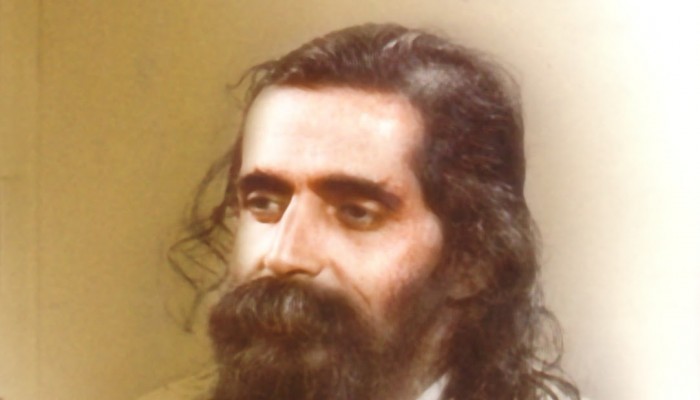Guruji Golwalkar’s Ideas for a Right Political and Economic Structure
- In Society
- 11:24 AM, Aug 29, 2020
- Niraj Pareek
Note: This essay is the fourth part in the series of articles based on Guruji's Bunch of Thoughts. Here is the link to third part-https://myind.net/Home/viewArticle/guruji-golwalkars-exposition-on-the-challenge-of-the-times
This speech of Guruji describes in detail about how to make the democratic structure of our country stronger and more participative. To give an example he talked I detail about how the He highlighted the importance of Panchayati system of governance which has been the cornerstone of our democratic values since times immemorial. The aspect of functional representation along with the unanimity in selecting the best person instead of purely relying on the numerical approach is an idea that is worth discussing.
One of the anomalies that needs to be corrected is the over centralization of powers that the State wields at present, when it comes to economic and political aspects. He talks about striking a balance wherein the individual is incentivized enough towards wealth creation up to certain limits.
Our country has adopted democracy. But if this arrangement has to succeed, we must ensure that common man is properly educated and enlightened. Such enlightened masses will be capable of electing the right type of representatives.
Representatives (politicians) who know nothing of their jobs come to occupy pivotal positions of responsibilities in those fields. And those who are actually in the know of things – the technical experts are helpless in such matters. They will have to only carry out the orders from “above”. This is one of the major obstacles which the present system of elections has thrown up. What is the way out?
Panchayat – the Cornerstone
It is this system which has been in vogue in our country since ancient times. Gram Panchayats have been the cornerstones of our socio-economic system. It is these Panchayats which, through widening circles of elections, finally elected the Ashta Pradhan Samitis, the eight member cabinet which acted as the advisory council to the king. These Panchayats were functional in their character. There were mainly four functional groups at that time. The first group comprised those devoted to study and teaching of material and spiritual sciences; the second, those entrusted with the running of administration. The third were the traders, and the fourth, those engaged in agriculture and allied handicrafts. There was a fifth group also residing in forests and living on hunting and forest produce. This fifth group was called the Nishada. Representatives of all these five together were taken so as to represent the interests of the society as a whole.
How to Correct
These days the slogan of Panchayat-raj is often heard. But the whole system has become perverted. Groupism and casteism have displaced the functional scheme. Notorious goondas often get elected to the Panchayats. Appeal to casteism, lure of money, threats, physical assaults have become the deciding factors; functional expertise has been thrown to winds. However, these distortions will have to be corrected. Well-meaning and socially conscious persons in each field should be encouraged to come together and exert their influence so as to give a clean and effective rural base to the entire national edifice. Stipulating that elections to Panchayats shall be unanimous, or that there shall be no elections at all, would be a very useful step in this direction. Electoral rolls and rules of elections may be suitably modified so as to ensure such a healthy and purposeful structure at the base. Of course this approach is not all smooth and does entail several obstacles.
Economy
About the structuring of national economy also we have our traditional thought which lays emphasis not merely on the monetary aspect. We have called the Arth-Shastra as Neeti-Shastra. Today this neeti is limited to Rajneeti-Politics-only. But in our ancient view, both politics and economics came under that one word.
Today, economics has become the more important factor out of the two. And socialism is often held as an ideal in this regard. Guild Socialism, Anarchism, Syndicalism, Communism are all described as various forms of Socialism. Whatever it is, why should we become slaves to such words?
Retreat of Over-Centralization
The basic principle of socialism, for example, is decentralization of economic power. Socialism also emphasizes that this decentralization should be just and equitable. So far, there can be no difference of opinion. But the differences start the moment the question crops up as to who should be empowered to see that the decentralization is just and proper. Which is that agency? These days the trend is gaining ground, that for carrying out decentralization, centralization is necessary; that in place of many centers of economic power the State alone should concentrate all the powers in its hands; that political power should alone be the effective centre and that it alone should have the monopoly on all means of production.
Under such a state of affairs, political authority becomes all-powerful and the entire society is reduced to slavery to the political masters. The people will have to be content with playing second fiddle to the all-powerful state.
Will Trusteeship Work?
Mahatma Gandhi had propounded the theory of trusteeship in the light of his perception of the tradition and life-philosophy of this land. In that concept, human incentive for production is not crippled. He is urged to produce as much as possible. But he is not to look upon himself as the owner of all that wealth; it essentially belongs to the community.
No doubt this approach is in consonance with our ancient Hindu thought. But there is a serious handicap in this. In the present age, the human mind has been so much confused and twisted out of shape that is unable to muster will and capacity for work where he is not able to secure profit for himself. We have to take into consideration this factor also.
Striking a Balance
So, we have to strike a balance wherein individual’s incentive is kept alive and at the same time decentralization of the wealth produced is also achieved. For this purpose some restraints will have to be placed on the individual.
Herein comes the genius of the Hindu viewpoint which prepares the individual’s mind for this adjustment. He is educated and enlightened with regard to true nature of happiness. For that he has to rise beyond his dependence on the physical objects, plunge into the depths of his own being and discover that eternal and boundless ocean of joy and bliss. He will then realize that the people around him are also manifestations of the same spirit and that the enjoyment of the fruits of his labour by them is equivalent to his own enjoyment.
It is against the background of this life-attitude that a balance could be achieved. The individual could be assured of his right to property which would enable him to meet the needs and responsibilities with regard to himself and his family. i.e. – scope for fulfilling his desires for enjoyment to a limited degree, while at the same time stipulating his contribution towards fulfilling the needs of the other members of the community. Well, these could form the broad outlines for a pattern of economy which could, in the present circumstances, ensure both the individual incentive and a just system of decentralization.
Basis of Success
However, basic to the success of this system is proper moulding of human attitudes. People should be imbued with the right philosophy of life. They should be able to check their self-centered propensities and be able to identify themselves with the joys and sorrows of their fellow beings. The spirit of self-discipline which alone will bring about this harmonious adjustment and co-operative effort for all round development of national prosperity must be inculcated.
Image Credit: Ennapadam Panchajanya







Comments